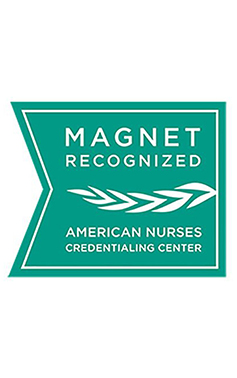Nurses: Join Our Team!
We offer fulfilling careers in a range of care settings.
At Exeter Hospital, relationship-based care is the philosophical and operational framework that guides all patient encounters. Our nurses promote, advocate for and strive to protect the health, safety and rights of the patient and their family. As proud recipients of the Magnet Designation, initially in 2013 and successfully re-designated in 2018 and 2023, Exeter Hospital prides our nurses for their quality patient care, nursing excellence and innovations in professional nursing practice.

Welcome — and thank you for considering a future with us!
At Exeter Hospital, part of the Beth Israel Lahey Health system we are proud to be a Designated Magnet organization, recognized nationally for excellence in nursing practice and leadership. This distinction reflects our deep commitment to quality, innovation, and empowerment at every level of nursing.
As the Chief Nursing Officer, I am honored to lead a team of compassionate, driven, and highly skilled nurses who make a difference every single day. Our nurses don’t just provide care — they help shape it.
Here, your ideas matter. Nurses participate actively in shared governance and help influence decisions that shape care delivery. Nurses work side-by-side with interdisciplinary teams and hold leadership roles in key initiatives. Our consistently high CMS and Leapfrog quality ratings reflect our dedication to safety, outcomes, and patient-centered care.
Whether you are just beginning your nursing journey or looking for your next professional home, you’ll find support, opportunity, and a strong sense of purpose here. At Exeter Hospital, nursing is more than a profession — it's a calling, a commitment, and a career that grows with you. Whether you are just starting out or bringing years of experience, we welcome your voice, your vision, and your passion. I invite you to explore all that a nursing career at Exeter Hospital can offer.
Join us and be part of something exceptional.
Warmly,
Michelle Savoie, MSN, RN, NE-BC
Chief Nursing Officer
At the core of the model is a heart which represents patients and families and Relationship-Based Care (RBC), Exeter’s care delivery system and theoretical framework for practice.
RBC is comprised of three crucial relationships:
The four shapes represent members of the care team; each one supporting the heart. The shapes also signify the four essential components of the Professional Practice Model.
Different colors within the model represent diversity, both within the care team and among patients and their families.
An inward facing care team indicates a shared focus on patients and families and invites open communication; overlapping hands illustrates interprofessional teamwork, caring, and collaboration.
The circular design represents the continuous and ongoing nature of professional practice and its inextricable link to excellent patient outcomes.
At Exeter Hospital relationship based care is the philosophical and operational framework that guides all patient encounters. This model recognizes that healthcare is provided through relationships. The activities of care are organized around the needs and priorities of patients and their families.
All care practices visibly demonstrate the mission and values of the organization, including those of clinician and staff members from all disciplines, departments and services.
We believe that each individual has a right to ask questions and make informed choices for their health and future. The nurse's primary commitment is to the patient, whether an individual, family, group or community. The nurse promotes, advocates for and strives to protect the health, safety and rights of the patient.
Exeter Hospitals nurses have a voice in practice empowers bedside nurses to have a voice in practice. There are many different opportunities to get involved.


Exeter Hospital has been Magnet designated since 2013 by the American Nurses Credentialing Center (ANCC), a distinction earned by only 7% of hospitals nationwide. Magnet recognition honors nursing excellence, quality care, and innovation.
Exeter Hospital’s Progressive Care Unit (PCU), Family Center, and Intensive Care Unit (ICU) have earned the Beacon Award for Nursing Excellence from the American Association of Critical-Care Nurses (AACN).